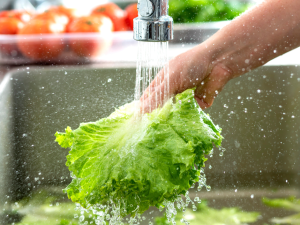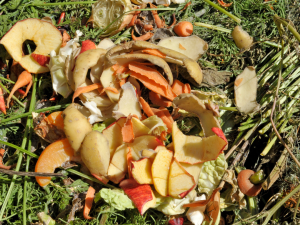Organic food has become more popular over the years as people strive to make healthier dietary choices. However, buying organic food can be expensive and many are concerned about not being able to afford a budget for organic food. In this blog post, I will discuss how to eat organic food on a budget. I’ll provide tips on how to save money while still eating healthy, high-quality organic food. So if you want to eat better but don’t want to break the bank, keep reading for some helpful tips on eating organic food on a budget.
Go shopping with a shopping list
Going shopping can be one of the most daunting tasks out there, especially when it comes to budgeting for organic food. It’s hard to stay on track and it’s easy to blow your budget if you’re not careful. But here’s the good news: you can still eat organic food without going broke, and all it takes is a little bit of planning!
The key to eating organic on a budget is to go shopping with a shopping list. Put together a meal plan at the beginning of the week, and use that to create a shopping list. Make sure you include all the cheap organic food options, as well as any affordable organic food you want to buy. This way, you’ll avoid impulse purchases and save yourself a lot of money. Plus, you won’t end up with lots of food going to waste in the bin because you bought too much!
Compare prices
Comparing prices is a great way to save money when it comes to buying organic food. At Organic & Quality Foods, there are fantastic specials every week, so you can be sure that you’re getting the most bang for your buck. Plus, buying organic products doesn’t have to break the bank. Look out for products that are about to expire they often cost much less than their fresher counterparts. Juicing quality produce can also be a great option for cheap organic food, as these products are of high quality but may not look as perfect as first-grade produce. So, if you’re looking for affordable organic food, compare prices and look for offers—you may be surprised by how much you can save!
Buy seasonal
If you want to get cheap organic food without breaking the bank, then buying seasonal produce is the way to go! Seasonal fruits and veggies are not only fresh and nutritious, but they’re also more affordable than out-of-season produce. Plus, seasonal produce usually has a better flavour than non-seasonal items. So, stock up on your favourite seasonal fruits and vegetables and enjoy the delicious, affordable organic food that they offer!
Buy regional
If you want to stretch your grocery budget, buy regional! Buying locally grown food not only helps the local economy, but it can also be a major cost-saver. That’s because the fewer transport costs are in the food, the cheaper it should be. Not to mention that local produce is often fresher and more flavourful. So forget about buying those expensive imports from distant lands and opt for locally grown produce instead. To maximize your savings, head to an organic shop such as Organic & Quality Foods and pick up what grows in front of your door, rather than the supermarket products that have travelled half the world behind them. You’ll be amazed at the quality and prices!
Avoid processed foods
It’s time to kick the processed foods habit! Eating processed foods may seem cheaper, but it will cost you more in the long run. Processed foods are often expensive and loaded with artificial ingredients that do nothing for your health. Instead of reaching for pre-packaged snacks, try making your own treats at home. You’ll save money, and you’ll know exactly what’s going into them. Plus, they’ll taste much better!
Reduce meat consumption
My motto when it comes to eating organic meat is “a little bit goes a long way”. I don’t eat organic meat every day, because it can get expensive. But if it’s on the menu, I try to make the most of it. I like to use small quantities of organic meat, such as minced or chopped meat, and mix it with lots of vegetables. That way, I get all the flavours and nutrition of organic meat without straining my wallet. This helps me achieve a balanced diet that includes some protein from organic sources, but also plenty of fibre from veggies. It’s a win-win situation!
Stock up
One of the best ways to save money on organic food is to stock up on items you buy regularly. Buying in bulk is often much cheaper than buying individual items, and Organic & Quality Foods is here to help. From staples like grains and flour to speciality items like Epsom salt, they have discounts on box prices and bulk orders. Just ask them and they will find the best price for you.
Not only is it usually cheaper to buy five kilos of grains and flour instead of five times 1kg, but you’ll also save time and energy that would have been spent making multiple trips to the store. Furthermore, stocking up on pantry staples can help to reduce food waste – when you have plenty of food in your pantry, you are more likely to use what you have before it goes bad.
At Organic & Quality Foods, you can get great deals on items such as:
• Fruits & vegetables
• Grains & flours
• Nuts & seeds
• Baking ingredients
• Specialty foods
• Condiments & sauces
– Frozen meat
Don’t forget that many foods have a long shelf life and can be stored for months in the right conditions. So stock up and enjoy the savings!
Avoid food waste
It’s not a pleasant experience to open your fridge and find that all your hard-earned produce has gone bad. But with some clever food prep, you can avoid wasting food and make sure that everything you buy will be used up. Start by planning and creating a weekly meal plan that includes all of the vegetables, fruits, and herbs you will need. Then, when you go grocery shopping, stick to your list.
Once you have your groceries, use up all edible parts of your veggies. Don’t discard those veggie stems or skins – they can be used for making stock or tasty, nutritious side dishes. To add some crunch, try shallow frying some of your leaves or skins of root vegetables too. You’d be surprised at how delicious these can be! Finally, don’t forget about those leftovers: be creative and find creative ways to reuse them. With a bit of effort, you can turn any meal into a delicious and nutritious feast.
Be creative with your leftovers
If I have leftovers, I like to get creative with them. It’s amazing how much you can make out of a little bit of something. I’ll often add some things from the pantry to jazz the leftovers up. I’ve used leftovers as pizza toppings, and sandwich filling, mixed them through salads or baked them into a pie. The imagination does know no limits! Of course, when it comes to leftovers you want to make sure that they’re still good to eat and that you’re being safe with food handling. I always make sure I check expiration dates, store things at the right temperature, and throw out anything that looks or smells bad. But if the food is still good, why not make something delicious out of it?
Conclusion
Eating healthy doesn’t have to break the bank, and you don’t have to sacrifice quality or flavour either. With a little bit of planning and creativity, it’s possible to stay within your budget while still enjoying organic, high-quality food. The key is to plan ahead, shop smart, and be creative with what you buy. Remember, you don’t have to spend a fortune to eat healthily; just use these simple tips and you can enjoy delicious, affordable organic meals all year long! So what are you waiting for? Let’s get shopping and start eating healthier today!




